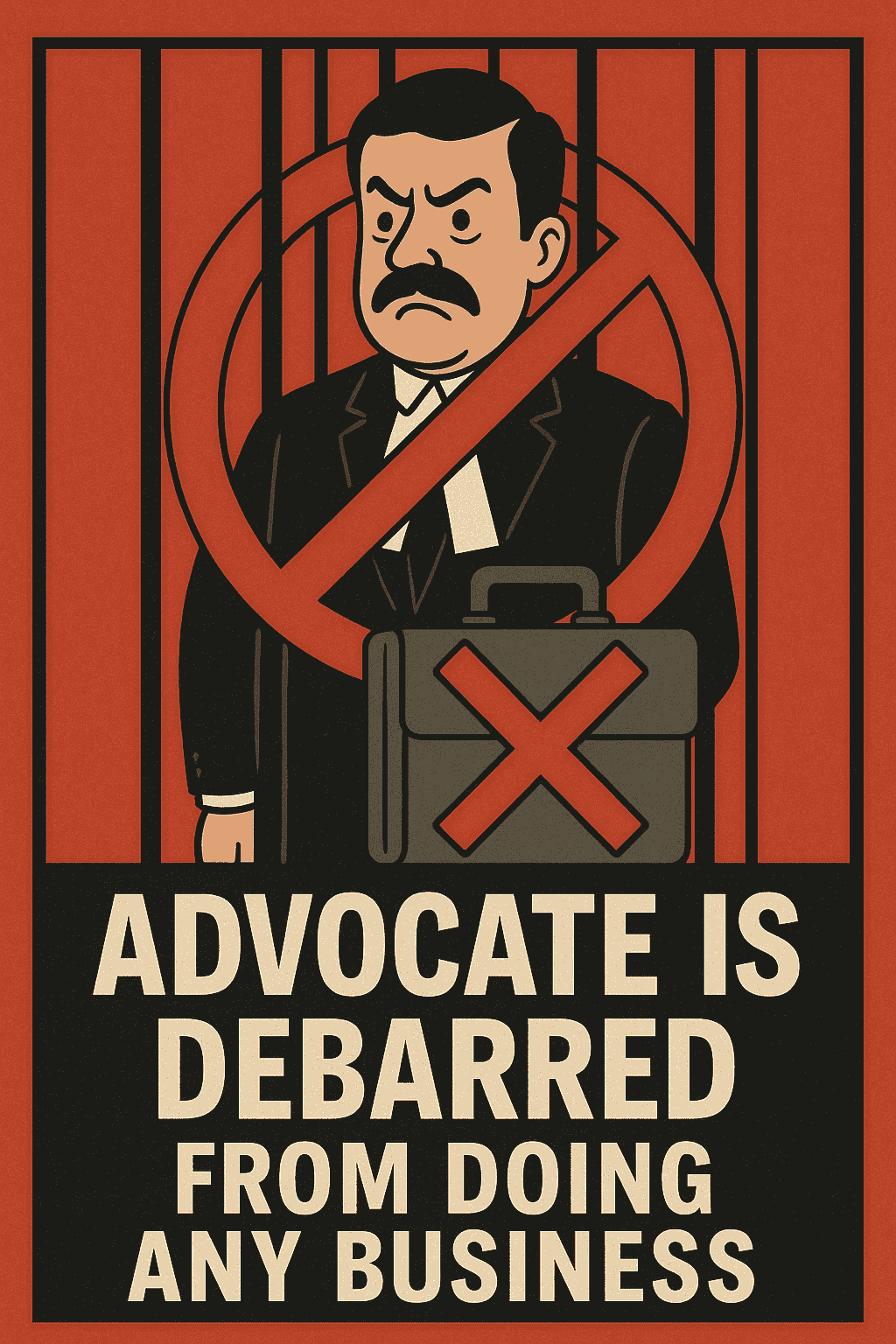



"Justice cannot be for one side alone, but must be for both"

Case Commentary
Bhupinder Sharma V Bar Association Pathankot
Authored by Ms. Sribala V
Law Student
Sastra Deemed University
Click here for copyrights policy
Factual Matrix Of The Case:
• The case was brought before the Supreme Court of India in the form of an appeal under Section 38 of The Advocates Act, 1961 against the judgment and order dated November 4, 1998 passed by the Disciplinary Committee of the Bar Council of India, confirming the order passed by the Disciplinary Committee of Bar Council of Punjab & Haryana removing the name of the appellant from the States Roll of Advocates under Section 35(3)(d) of the Act.
• The bench consisted of Justice D.P. Mohapatra & Justice Shivaraj V. Patil.
• on September 16, 1994 The appellant was enrolled with the State Bar Council as an Advocate.
• On September 9, 1995, the respondent-association made a written complaint to the State Bar Council making allegations of misconduct against the appellant.
• The State Bar Council took cognizance of the complaint and referred the complaint to its Disciplinary Committee. After the completion of the proceedings in D.C.E., order was passed by the Disciplinary Committee of State Bar Council to remove the name of the appellant from the State Roll of the Advocates and the same was confirmed by the Disciplinary Committee of the Bar Council of India, in appeal.
• Hence, this appeal.
• On September 9, 1995, the respondent-association made a written complaint to the State Bar Council making allegations of misconduct against the appellant.
• The decision of the DCE was held on November 4, 1998.
• After that judgement, this appeal was filed in the Supreme Court of India.
• The appellant – Bhupinder Kumar Sharma filed this appeal against the order of the DCE, as the DC, BCI had removed his name from the State Roll of the Advocates
Substantial Question Of Law
- Whether the appeal is fit to be entertained?
- Whether the punishment given to the appellate is appropriate?
Legal Provisions
This case concerns Article 133 of the Indian Constitution and was a civil appellate petition. It contains Section 26 of the Advocates Act of 1961, which establishes the procedure for handling applications for admission as an advocate. A State Bar Council may issue written instructions on how to handle the application in accordance with the section's specific requirements.
It contains Section 35(3)(d) of the Advocates Act of 1961, which outlines the provision for - Punishment of Advocates for Misconduct. If a State Bar Council receives a complaint alleging that any Advocate on its Roll has engaged in professional or other misconduct, the following orders may be imposed: Dismissing the complaint, reprimanding the advocate, suspending the advocate from practise for however long it sees fit, and removing the advocate's name from the State roster of advocates are all options.
The final provision is found in Section 38 of the Advocates Act of 1961, which states that anyone who is unhappy with a decision made by the Bar Council of India's disciplinary committee may file an appeal with the Supreme Court of India within sixty days of the date on which the decision was communicated to him.
Arguments By Parties:
Appellant’s Contention:
• The learned senior counsel for the appellant strongly contended that the allegations made in the complaint were not established or proved.
• The standard of proof is required in a case like this.
• Here, the appellant was not actually carrying on business and the evidence on this point was not properly appreciated.
• Thus, it was argued that the punishment imposed on the appellant is grossly disproportionate even if it is assumed that the misconduct was proved
Respondent’s Contention:
• The learned senior counsel for the respondent made submissions supporting the impugned order.
• He drew out attention to the evidence brought on record to show how the findings recorded against the appellant are justified.
• He strongly contended that the misconduct of the appellant before and after filing of the appeals before the Bar Council of India and this Court in continuing the business cannot be condoned.
• Further, in spite of giving undertaking before this Court, he is still continuing his business as is supported by the report of the Sub-judge made to this Court.
• Thus, here it was argued that the punishment imposed on the appellant is proper in the absence of any good ground to take any lenient view
Judicial Interpretations That Deduced The Verdict (Other Significant Reference Cases)
• The finding recorded holding the appellant guilty of professional misconduct is supported and based on cogent and convincing evidence even judged by the standard required to establish misconduct as required to prove a charge in a quasi-criminal case beyond reasonable doubt.
• Any merit in the argument that the misconduct alleged against the appellant was not properly proved by the standard required to prove such misconduct was not found.
• There was also no merit in the contention that the evidence was not properly appreciated by both the Disciplinary Committees.
• Nothing was brought on record to discredit the evidence led on behalf of the complainant and no material was placed to support the allegation of the appellant that the members of the respondent – Association had any grudge or ill-will against the appellant.
• Having regard to the nature of misconduct and taking note of the handicap of the appellant, the court opined, debarring him from practising for all time is too harsh, thus it should consider it just and appropriate to modify the punishment to debar the appellant from practising upto end of December, 2006.
Critical Comments On The Case:
The current case deals with the rules relating to advocates being debarred from doing business. This provision is laid down in the rules of 47 to 52 of Bar Council of India. In my view, the decision of the Supreme Court of India on the above-mentioned case was fair, balanced, and acceptable for a number of reasons. One of the reasons is the provision of the Advocates Act, 1961 that “An advocate 131 is been barred from doing business and earn the profits.” Thus, he cannot be the proprietor of any business entity. Here, the appellant, Bhupinder Kumar Sharma should be punished for his conduct – for making profits out of business, but not by disbarring him from practicing for all time, as it would be too harsh. Thus, the court rightly opined to be just in giving the punishment to the accused advocate.
Important Cases Referred
• B. S. R and Associates Ltd. & Anr v. Union of India & Anr, (2021) ibclaw.in 109 SC
• N Sampath Ganesh v. Union of India & Anr, 2019 SCC Bom 9643, 2020 SCC Bom 782
Journal Volume
You should always try to find volume and issue number for journal articles.


Nyayavimarsha
No. 74/81, Sunderraja nagar,
Subramaniyapuram, Trichy- 620020